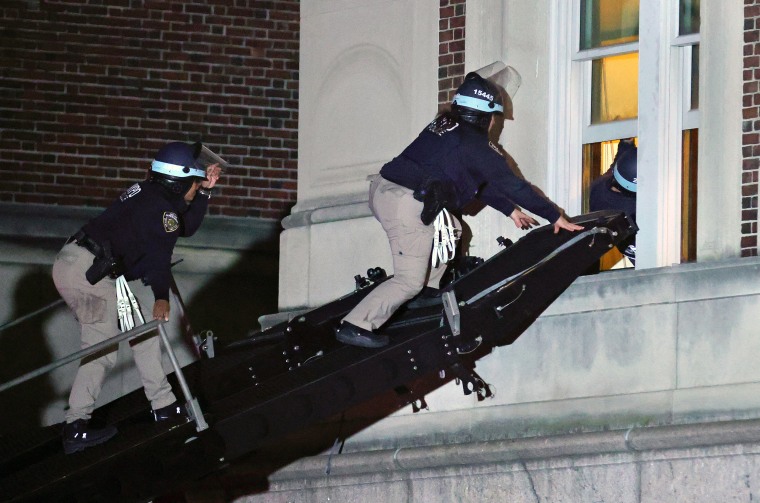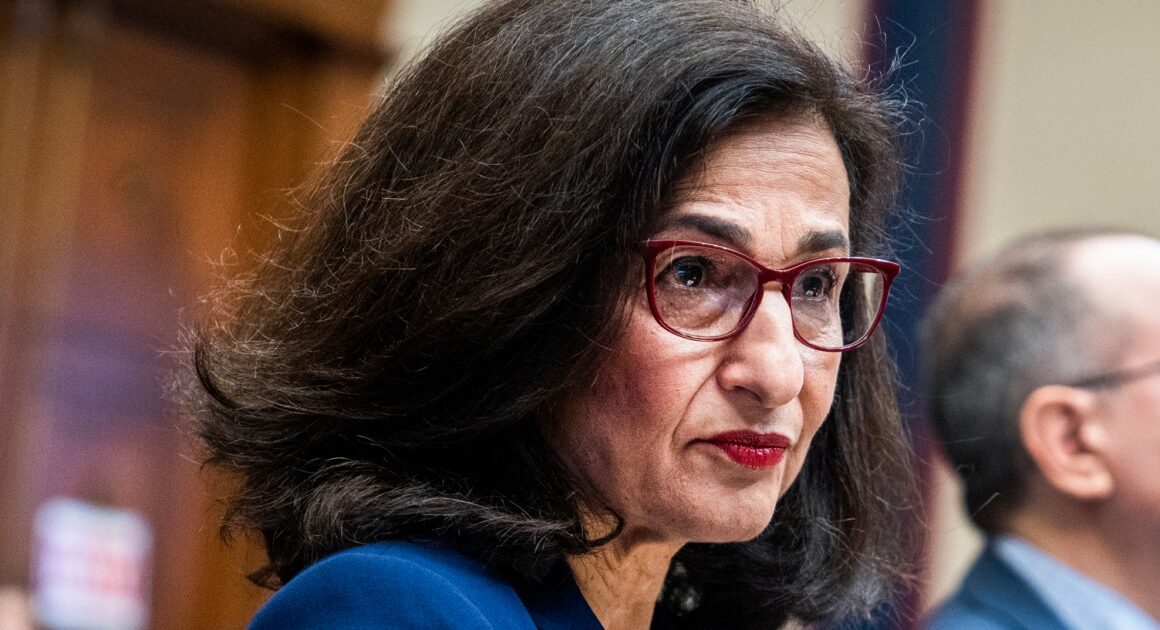The president of Columbia University announced her resignation Wednesday after a little more than a year on the job, following months of criticism over protests on the Manhattan campus over the war in Gaza.
Nemat “Minouche” Shafik had been criticized by anti-war protesters and by House Republicans in Congress, but for different reasons.
In a letter to the Columbia community, Shafik said that while she was president “we have made progress in a number of important areas.”
“However, it has also been a period of turmoil where it has been difficult to overcome divergent views across our community,” she said. “This period has taken a considerable toll on my family, as it has for others in our community.”

Shafik, an economist who became president of the Ivy League school in July 2023, asked the New York Police Department twice to clear encampments set up this spring by protesters in what demonstrators said was an act of solidarity with Palestinians.After the first encampment on the Manhattan campus was cleared, a second one grew. Protesters took control of Hamilton Hall, and the NYPD cleared it and the encampment at the request of the university. In May, some students gathered outside Shafik’s house to protest and scream, typically a ritual held during finals.
In April, Shafik appeared before a House committee and faced questions about her handling of antisemitism on campus.
The resignation is effective Wednesday, Shafik wrote in the letter.
“Over the summer, I have been able to reflect and have decided that my moving on at this point would best enable Columbia to traverse the challenges ahead,” Shafik wrote. “I am making this announcement now so that new leadership can be in place before the new term begins.”
Columbia’s Board of Trustees said in a statement that it “regretfully accepts Minouche Shafik’s decision to step down as president of the University.”
A school leader with direct knowledge of the situation said the intense criticism and tension on campus amid the protests had become too much for Shafik to bear when it started to affect her family.
The person said they found the announcement unexpected despite the months of tensions at Columbia.
Katrina Armstrong was named interim president. She is CEO of the Columbia University Irving Medical Center and leads Columbia’s health and biomedical sciences campus.
“With optimism and resolve, let us move forward together, embracing the opportunity to renew our vision and strengthen our community,” Armstrong wrote in a letter about being named interim president.
The university was already anticipating a tough semester when classes resume next month, but it is now concerned about entering the new school year with new leadership who many faculty and students do not know, the school leader said.
Columbia will focus on developing plans to be “proactive instead of reactive” this semester in its response to the protest movement and any lingering tension between the school and its trustees, who see the campus as too left-leaning, the school leader said.
The student protest group Columbia Students for Justice in Palestine welcomed the resignation on X. It had called on Shafik to resign.”After months of chanting ‘Minouche Shafik you can’t hide’ she finally got the memo,” the group said. “To be clear, any future president who does not pay heed to the Columbia student body’s overwhelming demand for divestment will end up exactly as President Shafik did.”
Protests erupted at college campuses across the U.S. following the Oct. 7 terrorist attacks by Hamas against Israeli civilians, in which 1,200 people were killed and more than 200 hostages were taken, and during the subsequent war Israel launched against Hamas in Gaza. Since Oct. 7, over 39,900 people have been killed in Gaza, according to the Palestinian Ministry of Health.
Many protest groups called for their schools to divest from financial support of Israel, including those at Columbia demonstrations.
Elisha Baker, a junior at Columbia and leader in its group of Jewish students, has said that he felt unsafe on campus during the protests. He called Shafik’s resignation “big news,” but added: “This is about the leadership and governance of Columbia University.”
“The only thing that matters now is what happens next,” Baker, 21, said in a phone interview Wednesday. “I hope that Interim President Armstrong will assert strong leadership to keep Jewish students and all students safe, and to restore the values and the integrity of Columbia.”
Shafik wrote in the letter announcing her resignation that she holds as dear values that she said are Columbia’s values, which include free speech, openness to new ideas “and zero tolerance for discrimination of any kind.”
“Even as tension, division, and politicization have disrupted our campus over the last year, our core mission and values endure and will continue to guide us in meeting the challenges ahead,” Shafik wrote.
“I have tried to navigate a path that upholds academic principles and treats everyone with fairness and compassion. It has been distressing — for the community, for me as president and on a personal level — to find myself, colleagues, and students the subject of threats and abuse,” she wrote.
Heads of some universities became targeted by Republican lawmakers who alleged that demonstrations on college campuses were antisemitic.University of Pennsylvania President Liz Magill resigned in December after she was criticized by the White House, lawmakers and others after she appeared to dodge a question at a congressional hearing about campus antisemitism.
Harvard University’s president, Claudine Gay, resigned around a month later, in early January.
Rep. Elise Stefanik, R-N.Y., who had celebrated the earlier resignations, said in a statement Wednesday night: “Three down, so many to go.”
,









